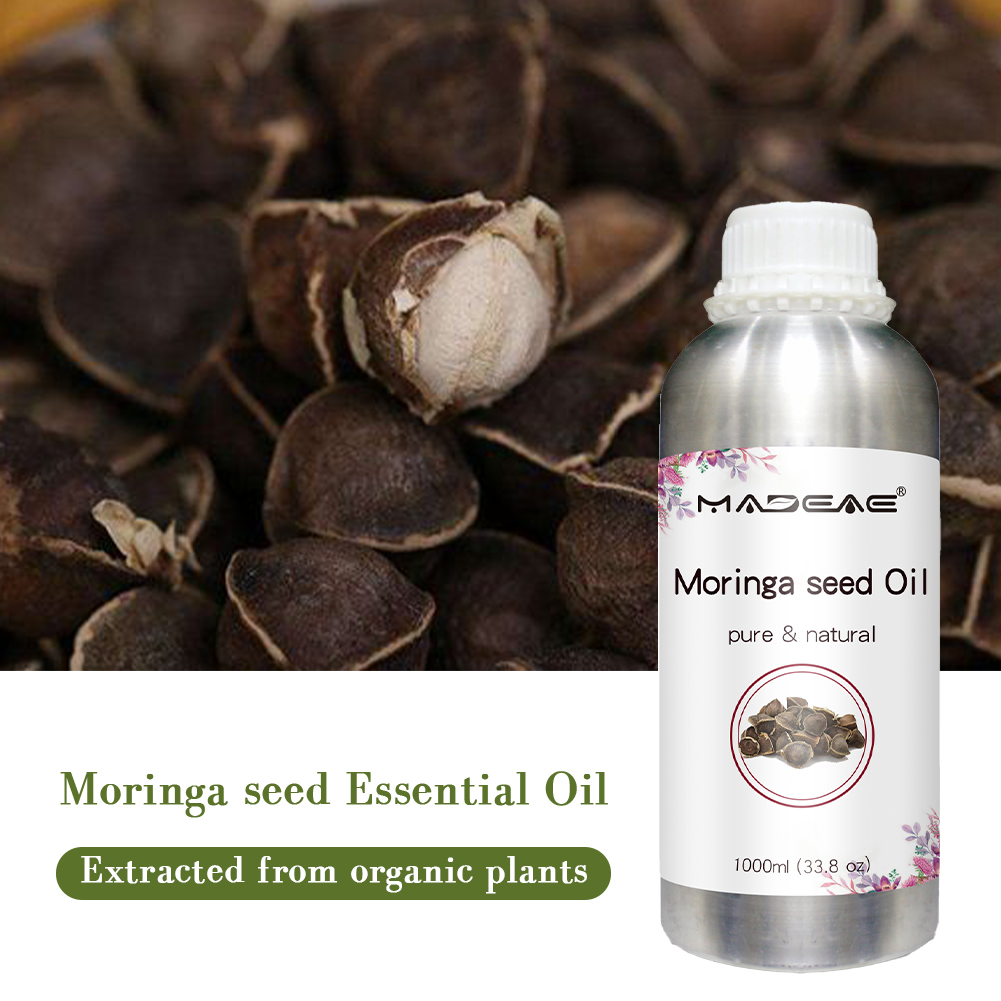Benefits of Moringa Oil
Research has found that the moringa plant, including the oil, has several possible health benefits. To reap those benefits, you can apply moringa oil topically or use it instead of other oils in your diet.
Helps Reduce Premature Aging
Some evidence suggests that oleic acid reduces premature aging by smoothening fine lines and wrinkles.
For example, one study published in 2014 in Advances in Dermatology and Allergology tested the effects of moringa leaf extract on the skin. The researchers asked 11 men to apply either a cream containing moringa leaf extract and a base cream. The men used both creams twice daily for three months.
The researchers found that compared to the base, the moringa leaf extract improved skin texture and reduced the appearance of wrinkles.
Moisturizes the Skin and Hair
One feature of moringa oil that can benefit the skin and hair: oleic acid, a fatty acid in many plant and vegetable oils.
“The high oleic acid content found in moringa oil suggests it would benefit dry, more mature skin types due to its significant moisturizing properties,” said Dr. Hayag.
The oleic acid in moringa oil acts as a barrier to help seal in moisture. So, the oil may be ideal for people with dry skin.1 What’s more, moringa oil is gentle and safe enough for all skin types, including those prone to acne breakouts, pointed out Dr. Hayag.
Also, moringa oil may be beneficial for people with dry hair. Similar to its effects on the skin, applying moringa oil to the still-damp hair after washing helps lock in moisture.
Might Treat Infections
Moringa oil might protect against and treat infections. Specifically, the compounds found in moringa seeds prevent the growth of bacteria and fungi that cause illnesses.
Research has found that the moringa plant may be a good alternative therapy for treating infections since it has few side effects.
Helps Manage Diabetes
Moringa oil may help control blood sugar levels. Although, researchers have mainly studied the effects of the moringa plant on blood sugar in animals.
Still, in one review published 2020 in Nutrients, researchers suggested that the moringa plant might lower blood sugar due to its fiber and antioxidant content. The researchers noted that few studies have shown that fiber and antioxidants help the body absorb glucose, also known as sugar.3
With diabetes, the body has trouble absorbing glucose due to low to no insulin levels. As a result, glucose builds up in the blood, which raises blood sugar. Uncontrolled high blood sugar can negatively impact health, including nerve and kidney damage.
Post time: Jan-18-2024


